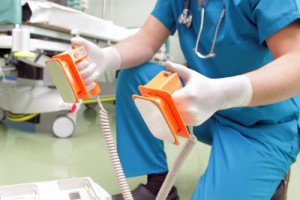Hospitals do an amazing job on a daily basis twenty four hours a day seven days a week. They offer an emergency service that is available whenever ever a person should require they do not close or are allowed to stop as they cater for the ill and injured and as illnesses and injuries are completely unpredictable hospitals offer a service throughout the year to cater for such needs. Medical professionals from carers to physicians work tirelessly having to do long drawn out  shifts and cover huge amounts of work in fairness often those that are needed most such as health care workers are not always awarded enough. Much of what is said above is true for an exceedingly majority of health care professionals who dedicate much of their lives to the work they do on a daily basis and are often taken for granted, however there is a very small minority that do not appreciate the responsibility that a job in the health industry claims and allow the service they provide to fall below that invisible line of ‘standard’ that should always be met.
shifts and cover huge amounts of work in fairness often those that are needed most such as health care workers are not always awarded enough. Much of what is said above is true for an exceedingly majority of health care professionals who dedicate much of their lives to the work they do on a daily basis and are often taken for granted, however there is a very small minority that do not appreciate the responsibility that a job in the health industry claims and allow the service they provide to fall below that invisible line of ‘standard’ that should always be met.
Medical care workers have a professional duty of care to all patients that they are providing health care and treatment for, if they breach such a duty then negligence may take place. Medical negligence means that a health care worker has provided a service and/or treatment that were below the standard that is expected of them and therefore no other health care provider of the same abilities in similar circumstances would have caused such harm. For the law to allow a patient to peruse a claim for medical negligence such negligence must have directly caused them further harm or ill health. If you believe that you have in some way been harmed either mentally or physically by a service provided by a health care worker then by seeking a No Win No Fee Compensation Expert and receiving free legal advice you may have a claim for medical negligence.
Why is it Important for Hospitals to Have the Correct and Up to Date Equipment?
Hospitals and their care are always in high demand as said above illness and injuries are unpredictable but it is vital for hospitals and other health care providers to always be on standby when their resources are needed. If a hospital fails to be able to provide such services then they are putting the lives of those that suffer injuries and illnesses at risk and are not offering the care and attention in which they should be. This is also in respect of the equipment that hospitals should be able to offer patients, it is crucial that hospital have the up to date facilities in terms of technology and treatment services so that their patients can receive the care needed. Equipment that is out of date or just depreciated over time can easily cause the patient to be harmed further as illnesses may go unnoticed or misdiagnosed as high tech diagnostic equipment may not be available.
With the recent outbreak of Ebola many hospitals are preparing themselves all around the world for cases if they should arrive at their doors. Guidance and management plans are being put in place so not only is the right care available to those who are ill with Ebola but so that others are protected from the illness. There are fears as there is no official cure or prevention for Ebola that hospitals may not have the ultimate facilities to cater for mass outbreak.
No Win No Fee Medical Negligence Claims
It is always strongly advised that when dealing with any compensation cases that victims should seek out legal advice and representation and this cannot be more true for cases of medical negligence. In terms of complexity medical negligence cases can be quite high on the scale. Combining both medicine and law equals challenging to say the least with both subjects being highly complicated. The majority of specialised legal law firms operate on a No Win No Fee agreements leaving their clients to rest assure that they are or will not be at any financial risk. With the law changing in April 2013 concerning medical negligence cases and fees it has brought about some confusing and may have in some way deterred those victims of medical negligence from pursing such a claim. However the changes stated only take affect if the case of medical negligence is won, if the case loses the client will still not have to pay a penny to either side of the legal teams however if the case is won they are entitled to pay their legal team up t 25% of the compensation awarded by the court.

